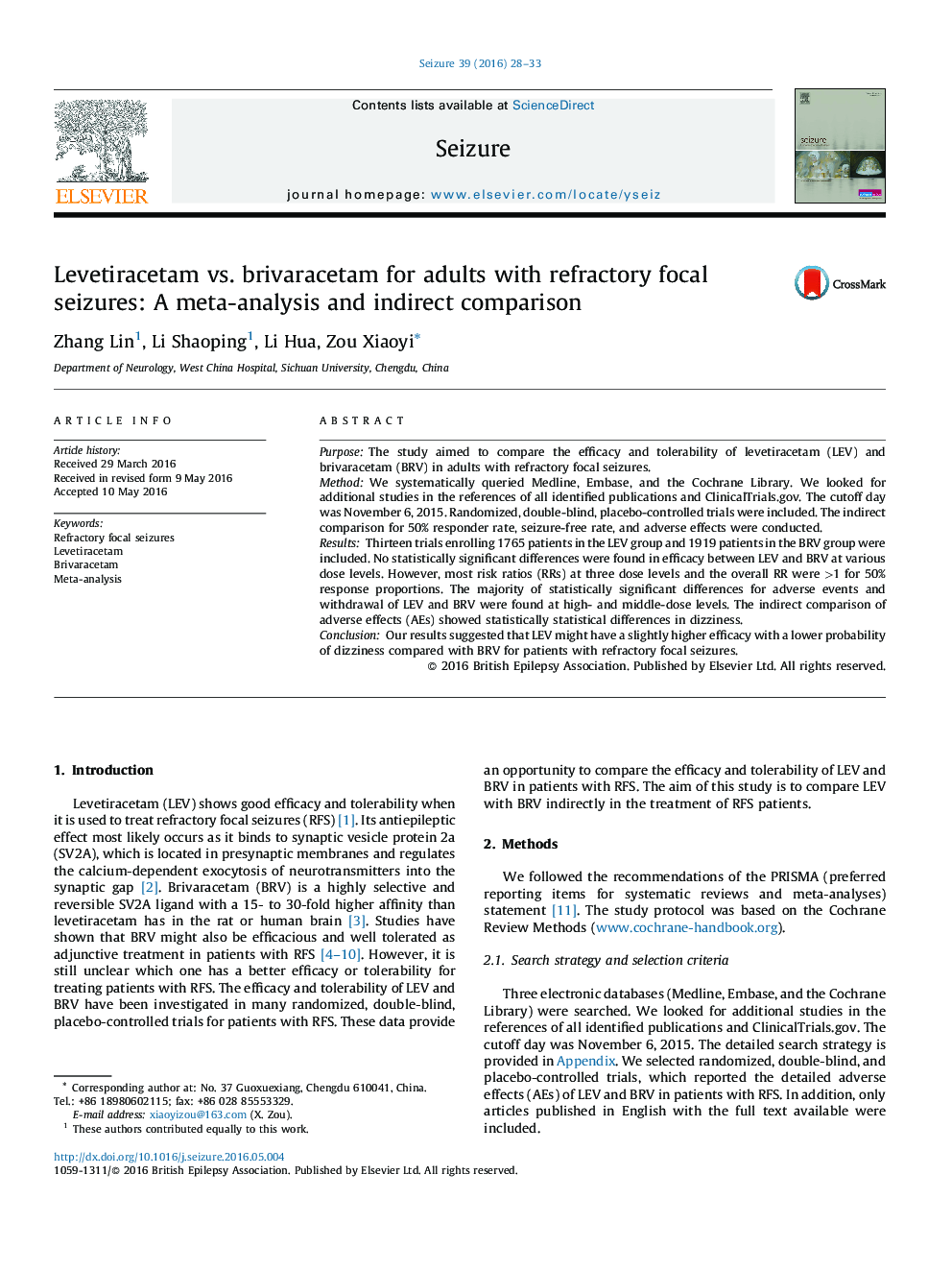| Article ID | Journal | Published Year | Pages | File Type |
|---|---|---|---|---|
| 340427 | Seizure | 2016 | 6 Pages |
•No difference in efficacy was found between LEV and BRV at various dose levels.•Compared with BRV, LEV might have a lower probability of dizziness.•Most adverse events of LEV and BRV were found at high- and middle-dose levels.
PurposeThe study aimed to compare the efficacy and tolerability of levetiracetam (LEV) and brivaracetam (BRV) in adults with refractory focal seizures.MethodWe systematically queried Medline, Embase, and the Cochrane Library. We looked for additional studies in the references of all identified publications and ClinicalTrials.gov. The cutoff day was November 6, 2015. Randomized, double-blind, placebo-controlled trials were included. The indirect comparison for 50% responder rate, seizure-free rate, and adverse effects were conducted.ResultsThirteen trials enrolling 1765 patients in the LEV group and 1919 patients in the BRV group were included. No statistically significant differences were found in efficacy between LEV and BRV at various dose levels. However, most risk ratios (RRs) at three dose levels and the overall RR were >1 for 50% response proportions. The majority of statistically significant differences for adverse events and withdrawal of LEV and BRV were found at high- and middle-dose levels. The indirect comparison of adverse effects (AEs) showed statistically statistical differences in dizziness.ConclusionOur results suggested that LEV might have a slightly higher efficacy with a lower probability of dizziness compared with BRV for patients with refractory focal seizures.
